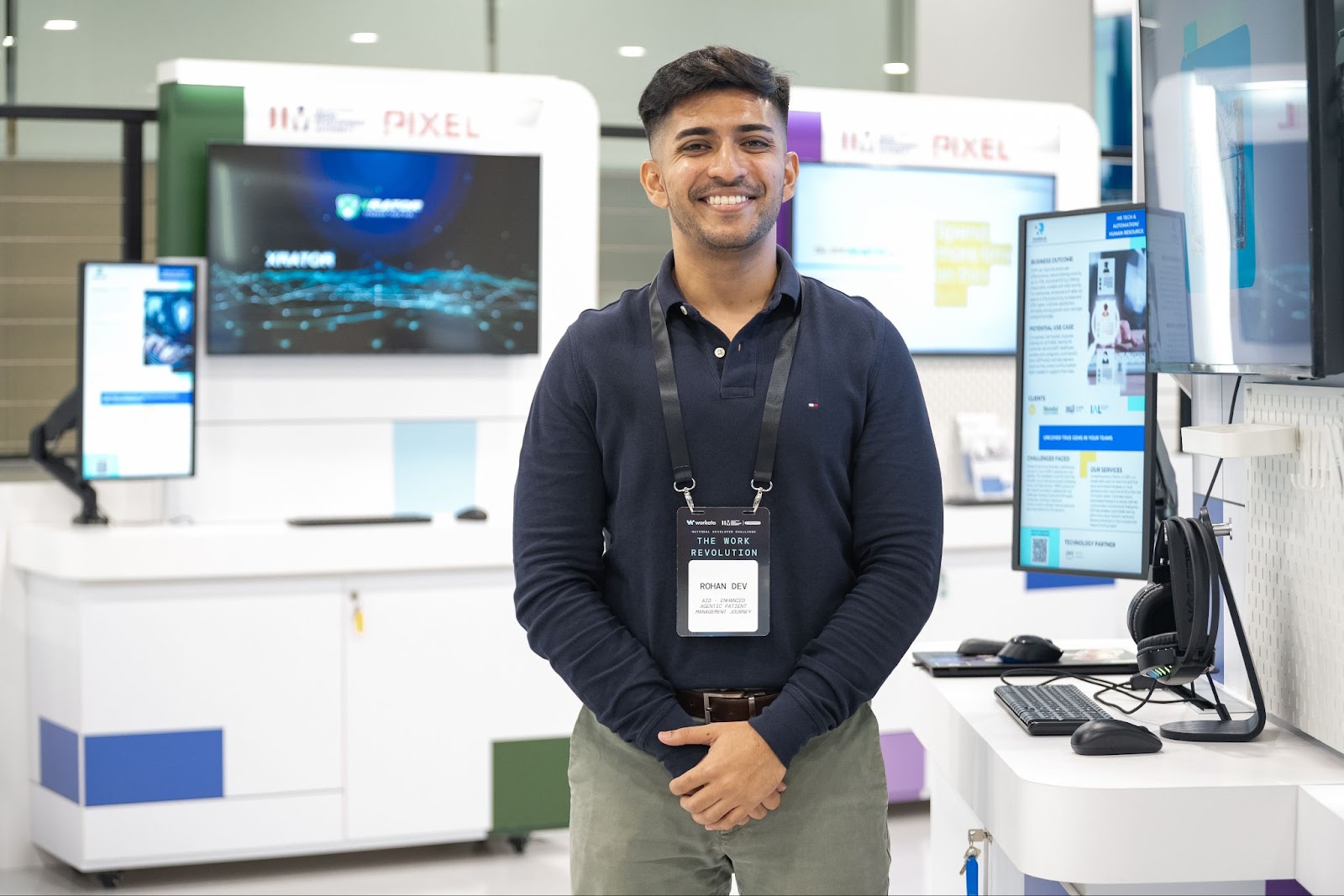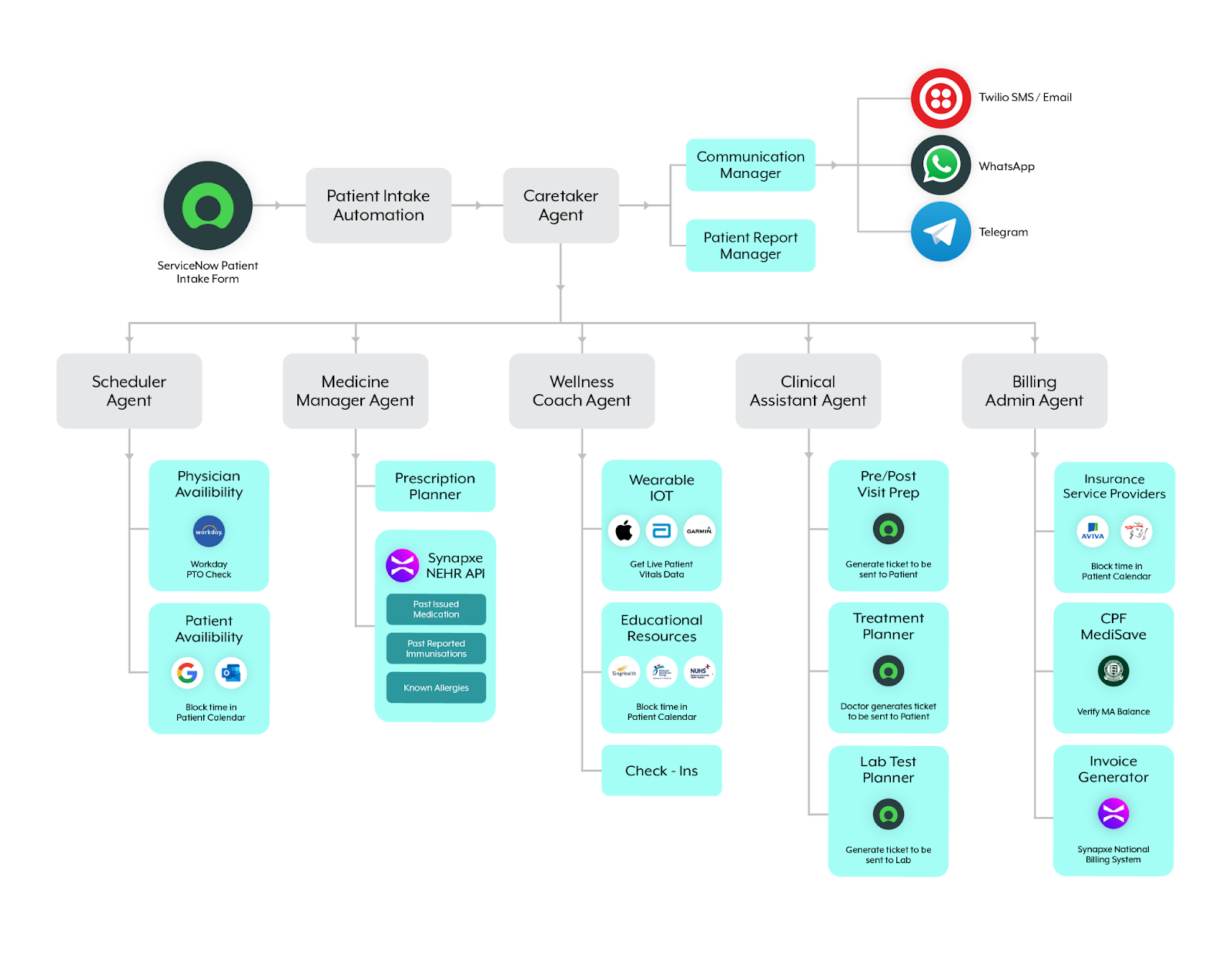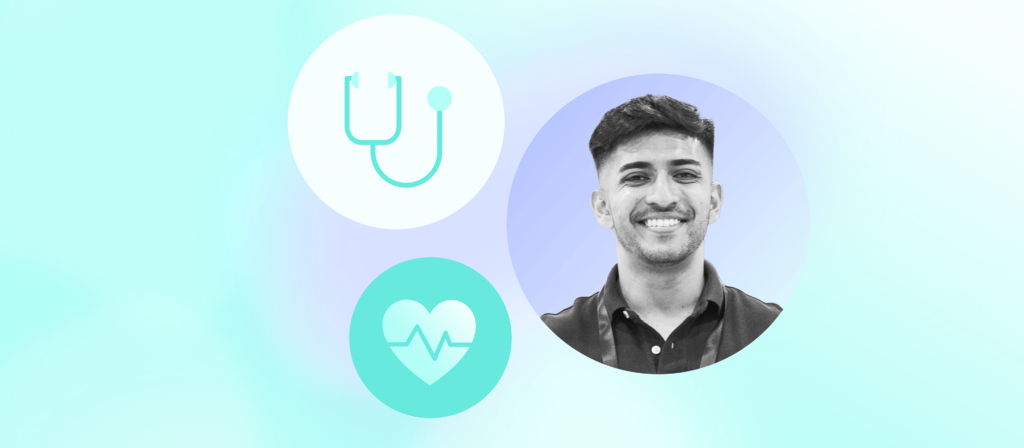Introducing the Third-Place Winner of the Workato x IMDA National Developer Challenge

Rohan Dev placed third in the Workato x IMDA National Developer Challenge with his AI-powered healthcare management solution
When Rohan Dev entered the Workato x IMDA National Developer Challenge, he brought with him not just technical skills but personal insight into the existing healthcare system’s inefficiencies. Inspired by his partner’s daily experience navigating the admin-heavy world of frontline medical care, Rohan set out to transform those challenges into a seamless, intelligent, and automated process.
The result was AID (Agentic Intelligent Design), a modular platform that leverages a team of AI agents to autonomously orchestrate a patient’s end-to-end healthcare journey. His innovation earned him the coveted third place and a $3,000 prize, with potential real-world applications across Singapore’s healthcare ecosystem.
From Real-Life Frustration to AI-Driven Innovation
“The idea for AID really came about when I heard from my loved ones who work in healthcare about how much time they spend on paperwork instead of on patients,” said Rohan.
Rohan wanted to address the overwhelming administrative load faced by healthcare professionals. From fragmented intake forms to repetitive insurance checks, these tasks not only drain time but also detract from the quality of patient care.
Built on Workato’s powerful integration platform, Rohan’s solution AID consolidates healthcare APIs, facilitates agent-to-agent collaboration, and ensures that routine administrative tasks can be completed with minimal human intervention. This frees up staff to do what they do best: care for patients.
Inside the Architecture: How AID Works
At its core, AID follows a hub-and-spoke model featuring one Manager Agent at the center, coordinating tasks among five specialized Worker Agents. Each agent subscribes to a shared message bus and operates asynchronously within its own domain:
- Scheduler Agent: Books and reschedules patient appointments
- Medicine Manager Agent: Handles prescriptions, dosage checks, and adherence
- Clinical Assistant Agent: Supports intake and treatment planning
- Wellness Coach Agent: Drives patient follow-up and preventive care
- Billing Admin Agent: Automates insurance eligibility and billing workflows

“Many hours can now be returned to healthcare workers for higher-value patient care,” explained Rohan. “It’s not just about automation, it’s about giving clinicians their time back.”
This agentic orchestration model is designed to be scalable, modular, and secure, ensuring continuity across the care journey without duplicating data or effort.
Navigating the Realities of Healthcare Data
As with many healthcare innovations, the biggest hurdle isn’t vision—it’s data access. In Singapore, gaining integration into platforms like the National Electronic Health Records (NEHR) system presents regulatory and technical challenges.
Rohan’s plan is to start small:
“Initial steps could involve deploying AID within smaller, independent clinics to validate its performance,” he noted. “That also opens the door for future partnerships with Synapxe via their NEHR API platform.”
By proving the system’s value at the micro level, AID can build momentum for wider adoption across public healthcare networks.
The Role of Mentorship and the Workato Platform
Rohan credits much of AID’s development success to mentorship from Workato’s experts and the capabilities of the platform itself.
“I’m grateful for the mentorship from Workato APAC’s Head of Professional Services, Kim Galant, he really pushed me to look at the problem from different perspectives,” said Rohan.
The pre-built API connectors and rich features within Workato accelerated AID’s development. Notably, Rohan heavily leveraged the ServiceNow connector to automate the patient intake process, a core feature of his live demo.
Preparing for AID’s Next Leap Forward
Looking back, Rohan says the most rewarding part wasn’t the prize. It was the challenge of thinking deeply about operational pain points in a sector we often take for granted.
“It really challenged me to think creatively and out-of-the-box for a solution that was modular by design and could handle specialized work autonomously,” he added.
Looking ahead, Rohan hopes AID can continue to evolve into a solution that truly alleviates healthcare worker burnout, while setting a precedent for AI-powered coordination in other industries like insurance and eldercare.
Final Thoughts: AID-ing the Future of Healthcare
Rohan Dev’s AID platform is a compelling example of what’s possible when empathy meets engineering. With our healthcare systems burdened by the needs of a rapidly ageing population and healthcare workers facing a manpower crunch, solutions like AID offer a glimpse into possible solutions for the next evolution of healthcare.
By combining agentic intelligence with the power of the Workato platform, Rohan’s solution lays the groundwork for a new era of intelligent healthcare orchestration, and perhaps, a new standard for what modern patient care can look like.
Read about the first and second place winners of the National Developer Challenge.

